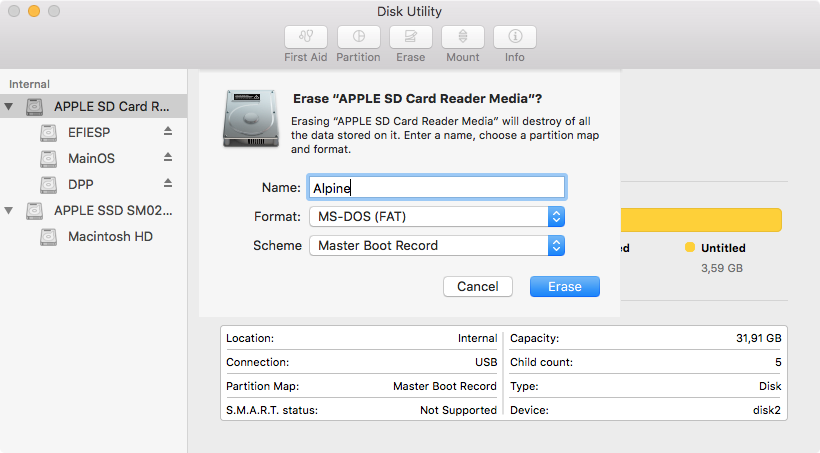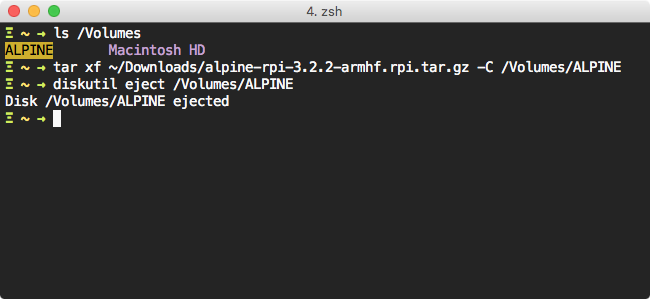Create a bootable SDHC from a Mac: Difference between revisions
(Sorry, learning wiki editor) |
m (Categorized: Installation) |
||
| (5 intermediate revisions by 2 users not shown) | |||
| Line 1: | Line 1: | ||
== Prepare Partition == | |||
[[File:OSXRpiSetupDiskUtility.png]] | |||
* Open disk utility | |||
* Select your SD Card | |||
* Click Erase in the menu | |||
* Set Format to MS-DOS (FAT) | |||
* Set Scheme to Master Boot Record | |||
* Click the Erase button | |||
== Unpack files == | |||
[[File:OSXRpiSetupTerminal.png]] | |||
* Open Terminal | |||
* Check your SD Card is mounted (in this case named "ALPINE") | |||
* Unpack files with <code>sudo tar xf ~/Downloads/alpine-rpi-[...]-armhf.rpi.tar.gz -C /Volumes/ALPINE</code> | |||
* Eject disk, it should now be ready to be used in the Raspberry Pi | |||
== After initial setup == | |||
After this preparation you should boot the Raspberry Pi with a keyboard and a HDMI screen connected, login as root and run <code>setup-alpine</code> and <code>lbu-commit</code>. | |||
[[Category:Installation]] | |||
Revision as of 00:56, 19 September 2017
Prepare Partition
- Open disk utility
- Select your SD Card
- Click Erase in the menu
- Set Format to MS-DOS (FAT)
- Set Scheme to Master Boot Record
- Click the Erase button
Unpack files
- Open Terminal
- Check your SD Card is mounted (in this case named "ALPINE")
- Unpack files with
sudo tar xf ~/Downloads/alpine-rpi-[...]-armhf.rpi.tar.gz -C /Volumes/ALPINE - Eject disk, it should now be ready to be used in the Raspberry Pi
After initial setup
After this preparation you should boot the Raspberry Pi with a keyboard and a HDMI screen connected, login as root and run setup-alpine and lbu-commit.

